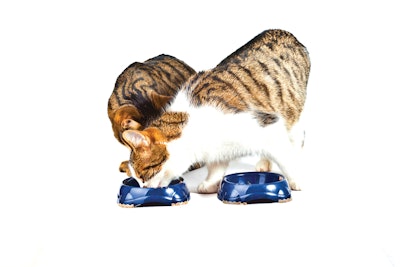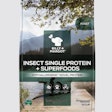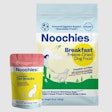
A DNA barcoding of 138 canned cat food products available in Taiwan has revealed extensive mislabeling that researchers say can harm the animals, violate cat owners' religious taboos and jeopardize natural resource management.
Using DNA barcoding methods that can effectively identify even highly processed products, the researchers have noted that the majority of processed pet food suffers from species misrepresentations either by substitution of one species for another or inclusion of undisclosed species. Of the 138 canned cat food they tested, they said most of the mislabeling incidents were related to replacement of tuna with other species. Their tests also revealed that numerous undeclared ingredients were present in all examined cat products. Overall, the mislabeling rate is at 28.99%, they said.
In particular, the five researchers and authors of the study (Yu-Chun Wang, Shih-Hui Liu, Hsuan Ching Ho, Hsiao-Yin Su and Chia-Hao Chang) targeted a short segment (~85 base pairs) of the mitochondrial 16S rRNA (16S) gene as a barcode and employed Sanger or next generation sequencing (NGS) to study the contents of various canned cat food and to gauge the extent of species misrepresentation in the Taiwan pet food market.
The researchers said the 138 cans of cat food they analyzed collectively showed 38 ingredients on their labels from fish, poultry, livestock, reptile, crustaceans, and mollusks. But based on their labels, 89 were deemed correctly labeled, nine could be categorized as uncertain, and the remaining 40 products were mislabeled as “either the molecularly-identified species was not the species expected based on the declared ingredients or the molecularly-identified species was absent from the ingredient list.”
The report also revealed that the Thunnini fish, not tuna, is the most commonly used fish found in cat food. Thunnini come in different genera (Thunnus, Katsuwonus, Auxis, Euthynnus, and Allothunnus). Results of the cat food DNA barcoding showed that the genera Auxis and Euthynnus were used to replace tuna even though “only Thunnus and Katsuwonus fishes can legally be used worldwide to produce commercial tuna products,” the report stated.
With a mislabeling rate of 28.99% (40/138), all of the products investigated by NGS metabarcoding contained undeclared species. This means ”it is highly probable that canned cat food products in the Taiwanese market are mislabeled even more extensively than appreciated,” the research team said in their report.
Meanwhile, the team's effort to DNA barcode 138 cat food sourced in Taiwan also uncovered that nearly all fishes identified in the samples are not from fish farms but wild-caught.
“Establishing a more precise picture of resource exploitation is a goal of fishery product barcoding studies. The extensive utilization of Thunnini in cat foods, as well as our detection of an endangered shark in a canned product, demonstrates that further DNA barcoding projects on cat food products are needed. Such studies would not only help protect owners and their cats, but also provide important information for better managing marine fishery resources,” the research team said.
Why mislabeling of pet food is a serious problem
When not properly informed of what goes into their pet's food, some individuals are at risk of handling food items that don't align with their racial, cultural, spiritual and even medical backgrounds. The researchers said pig was not listed as an ingredient in any of the products tested, but the barcoding analysis identified it in some products, which will certainly run afoul with Muslim cat owners. In addition, the DNA barcoding of cat food also detected shark, a non-kosher fish, which Jewish cat owners wouldn't appreciate.
Undeclared ingredients in pet food is a clear health risk as pets do have food allergies. The researchers raised the possibility of cats having cutaneous adverse food reactions (CAFRs) to beef and chicken, which incidentally were undeclared ingredients in some of the tested products.
The research team said more mislabeling investigations are needed to protect pets' health, the customers who are being deceived by wrong labels, and the sustainable use of fishery resources.
















